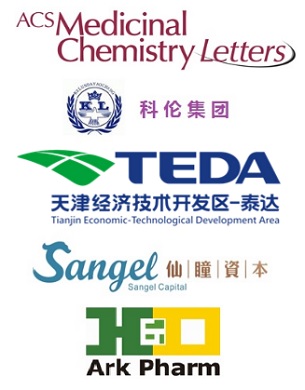国际新闻精选周二(2017年2月21日)
Chi-Med Initiates a Phase II Study of Savolitinib in Pulmonary Sarcomatoid Carcinoma
Hutchison China MediTech Limited (“Chi-Med”) (AIM/Nasdaq: HCM) today announces that a Phase II study of savolitinib has been initiated in locally advanced or metastatic pulmonary sarcomatoid carcinoma (“PSC”) in China. Savolitinib is a highly selective and potent oral c-Met inhibitor with global first-in-class potential. The first drug dose was administered on February 10, 2017.【阅读原文】
AstraZeneca’s Lynparza hits breast cancer trial targets
A late-stage study of AstraZeneca's PARP inhibitor Lynparza in patients with HER2-negative metastatic breast cancer who also carry BRCA1 or BRCA2 mutations has its primary target in boosting progression-free survival (PFS).
In the international Phase III OLYMPIAD trial, 302 patients were randomised to receive either Lynparza (olaparib) or a physician's choice of chemotherapy. According to top-line data, AstraZeneca's drug showed a significant and clinically-meaningful improvement in PFS versus chemotherapy, meeting the study's main endpoint.【阅读原文】
Biosimilar Inflectra matches Remicade efficacy in trial
Pfizer and Celltrion have unveiled Phase III study data comparable safety and efficacy between biosmilar Inflectra and reference drug Remicade in patients with moderate-to-severe Crohn's disease (CD).
The randomized 54 week clinical trial in 214 patients met its primary end point in showing that, at six weeks, Inflectra (infliximab CT-P13) was similar to Remicade (infliximab) in the treatment of CD thereby meeting the criterion for non-inferiority.【阅读原文】
Ozanimod safety still a question mark for Celgene
A first phase III win for Celgene’s ozanimod puts the project on track for approval in multiple sclerosis and goes some way to justifying the $7.2bn that the company paid for its originator, Receptos.
But, with safety data still thin on the ground, it is unclear whether ozanimod will get a more favourable label than Novartis’s rival sphingosine-1-phosphate modulator Gilenya. And, with a relatively crowded S1P pipeline, ozanimod needs to set itself apart if Celgene is to recoup its investment.【阅读原文】
MD Anderson Benches IBM Watson In Setback For Artificial Intelligence In Medicine
It was one of those amazing “we’re living in the future” moments. In an October 2013 press release, IBM declared that MD Anderson, the cancer center that is part of the University of Texas, “is using the IBM Watson cognitive computing system for its mission to eradicate cancer.”
Well, now that future is past. The partnership between IBM and one of the world’s top cancer research institutions is falling apart. The project is on hold, MD Anderson confirms, and has been since late last year. MD Anderson is actively requesting bids from other contractors who might replace IBM in future efforts. 【阅读原文】
AstraZeneca sells commercial rights to Zoladex cancer treatment
AstraZeneca plc (LON:AZN) has agreed to sell the commercial rights of its Zoladex cancer treatment in the US and Canada to TerSera Therapeutics in a deal worth more than $320mln.
TerSera will pay Astra $250mln up front for Zoladex, an injectable drug used to treat malignant prostate and breast cancer.【阅读原文】
Negative Trial in Metastatic RCC Still Generates Buzz
negative study in metastatic renal cell carcinoma (mRCC) stimulated a fair amount of positive feedback following a presentation here.
The randomized phase II study showed that the combination of the PD-L1 inhibitor atezolizumab (Tecentriq) and the angiogenesis inhibitor bevacizumab (Avastin) did not significantly improve progression-free survival (PFS) in untreated mRCC compared with sunitinib (Sutent). Atezolizumab alone also did not improve PFS versus sunitinib.【阅读原文】
SWOG study shows strong long-term survival rates for patients with GIST
Nine years ago, SWOG researchers confirmed a new standard of care for patients with incurable gastrointestinal stromal tumors (GIST), who could survive by being treated with imatinib mesylate, the breakthrough drug marketed as Gleevec. SWOG researchers are back with long-term findings from that study, which estimate that nearly one in four patients treated with Gleevec will survive 10 years. Results are published in JAMA Oncology.【阅读原文】
美中药源原创文章,转载注明出处并添加超链接,商业用途需经书面授权。★更多深度解析访问《美中药源》~
★ 请关注《美中药源》微信公众号 ★



















 微信号:美中药源
微信号:美中药源